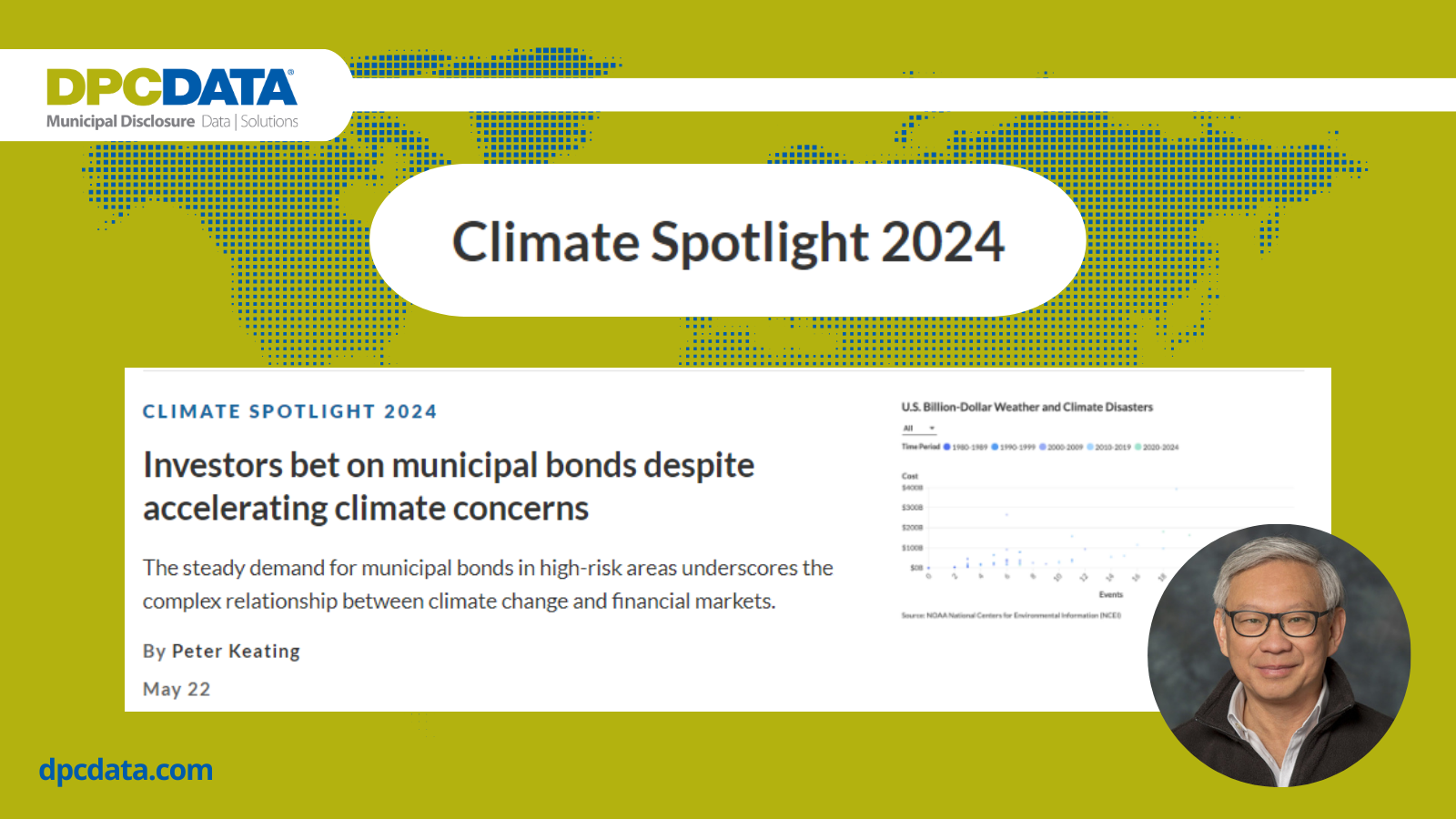Resources
[Article] Investors Bet on Municipal Bonds Despite Accelerating Climate Concerns
May 22 Bond Buyer article quotes Triet Nguyen on climate risk and federal disaster aid.

In Peter Keating’s article, “Investors Bet on Municipal Bonds Despite Accelerating Climate Concerns,” the paradox of investor behavior in the face of climate change is starkly highlighted. Miami, emblematic of climate vulnerability, has faced record-breaking heat, rising sea levels, and frequent tropical storms. Despite this, Miami has successfully issued significant municipal bonds with favorable yields, demonstrating a surprising disconnect between climate risk and municipal bond market behavior.
Keating points out that the municipal bond market, which finances the majority of American infrastructure, has largely ignored the growing climate risks. While various sectors, including homeowners and insurance companies, are grappling with the increasing costs of climate-related damages, municipal bonds have not seen downgrades due to these risks. For instance, Miami’s bond ratings were recently upgraded by S&P Global Ratings due to administrative changes rather than climate resilience.
Climate experts and financial analysts argue that climate risk is not priced into the municipal bond market. This is supported by studies indicating negligible impacts of climate risk on municipal bond yields. For example, a study found that increasing a municipality’s climate risk substantially would only minimally affect its borrowing costs.
Despite clear and present dangers—rising sea levels, more intense hurricanes, and increasing frequency of natural disasters—the municipal bond market remains seemingly detached from these realities. This disconnection is partly attributed to federal disaster aid expectations, which historically have mitigated financial impacts on municipalities. Additionally, political resistance to incorporating environmental, social, and governance (ESG) criteria into bond ratings has stymied significant shifts in investor behavior.
“Our market typically doesn’t react to slow-moving credit developments, like climate change, until there’s a catalyst event of some sort,” said Nguyen.
The insurance industry, in contrast, is already feeling the strain of climate change. Premiums for homeowners insurance have surged, and many insurers are retreating from high-risk areas, leaving more residents dependent on state-backed insurance with less coverage. This has started to affect property values negatively, particularly in high-risk areas, which could eventually impact municipal revenues and bond creditworthiness.
Keating concludes by highlighting that while the municipal bond market remains insulated from immediate climate risks, this detachment is unsustainable. The increasing severity and frequency of climate-related disasters will eventually force a correction, impacting property values, tax bases, and ultimately, municipal creditworthiness.
As Triet Nguyen, vice president for strategic data operations at DPC DATA, aptly stated, “One of the main reasons the market is still ignoring climate risk is that most participants believe federal disaster aid will continue for the foreseeable future.” Investors and municipalities must prepare for this inevitable shift to avoid being caught off guard by the accelerating impacts of climate change.
Read the entire Bond Buyer Climate Spotlight 2024 article.
DPC DATA adds climate risk data its municipal financial data platform
DPC addresses growing demand for data to support sustainable investing decisions by adding cutting-edge ESG scoring to its data service offerings. Users, who range from issuers to institutional investors and market regulators, can now more accurately assess location-based risks from climate effects and other critical factors. Read the press announcement.
Stay informed
Sign up and get the latest news and insights about DPC DATA’s municipal bond credit, disclosure, and compliance data solutions delivered right to your inbox.

